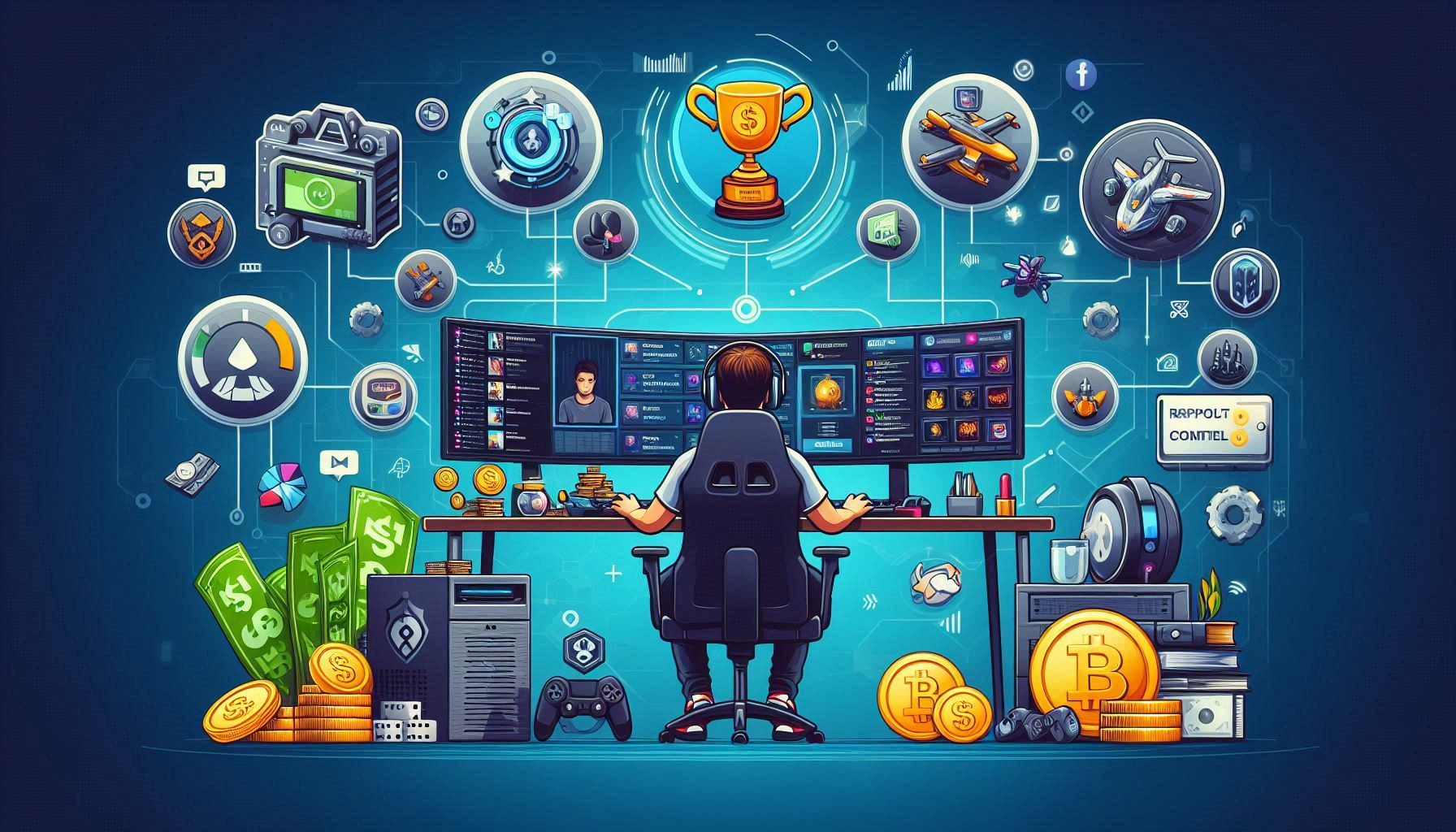Gaming has long been considered a mere pastime escape from the real world, the place to unwind and connect with friends while exploring alternate realities. However, that’s all changed dramatically over the last few years. Gamers are no longer playing for fun; they’re generating real wealth, career-building, and using virtual assets in a way that gives the world’s economy a new shape. With the emergence of digital spaces like metaverses, blockchain games, and competitive esports, players now have newfound doorways to convert their passion into profit. Let’s dive into how gamers are cashing in on the virtual goldmine.
1. The Rise of Play-to-Earn from Games
The “play-to-earn” model has emerged as an important driver of wealth creation in digital. Games like Axie Infinity and The Sandbox provide the features of earning real-world value via cryptocurrencies and non-fungible tokens (NFTs). Players breed, train, and battle virtual creatures called Axies and sell items or characters as NFTs in marketplaces, allowing these assets to be exchanged for cryptocurrencies, which can later be cashed out for fiat money.
Players in some countries are earning more from gaming than from traditional employment, turning the hobby into a respectable profession. It empowers gamers to monetize their time and skills by allowing them to own and sell digital assets with unprecedented freedom, making this industry one of the major players in decentralized finance in the future.
2. Esports: The New Professional Arena
One of the fastest-growing sectors in entertainment, esports will boast an estimated global market size of over $1 billion. Competitive gamers have now been recognized as professional athletes, competing in tournaments with multi-million-dollar prize pools available for the victors. Titles such as Dota 2, League of Legends, and Fortnite have set the stage for top players to earn their fortunes not only in competitions but also through brand sponsorships, streaming, and advertising deals.
Professional esports players have become household names, earning even higher sums than most other sports professionals. Gaming became a cash cow for generating money from their talents, personalities, and enormous fan bases.
3. Virtual Real Estate: Own land in the Metaverse
Now, it is virtual real estate. It seems that crypto voxels, among those land owners, are able to buy plots of land using cryptocurrencies. Almost overnight, the value increased so high that virtual land owners can turn shops, galleries, or even digital houses into receptacles for lease or sale. Prices for popular areas, such as high traffic ones next to virtual landmarks, have been sold for hundreds and thousands of dollars.
Not oblivious to the potential of the metaverse have been big brands and investors, who have spent millions of dollars on investments into these virtual realms. So, from building virtual shopping malls to hosting high-end events, the digital land boom is turning early adopters into virtual property moguls.
4. Content Creation and Streaming: Monetizing Audiences
The most important way gamers make money is through content. Platforms such as Twitch, YouTube, and TikTok now allow that kind of steam to viewers around the world: millions of them. They get money from advertising, subscriptions, donations, and brand sponsorships.
The most successful streamers have their entire empires built from content. Top creators like Ninja, PewDiePie, and Pokimane have surpassed the borders of gaming with multi-million dollar deals with platforms and brands. A dedicated fan base has provided a chance in business for gamers with their personality and gaming skills.
5. NFTs and Digital Collectibles: A New Asset Class
NFTs have indeed evolved the ways in which gamers create and own unique digital assets. From skins within the game to virtual artwork, NFTs open new sources of generating income for both the gamer and the creators. Rare NFTs on sale at Zed Where one breeds, trades, and races virtual horses may raise money as much as tens of hundreds of dollars. These collectibles, bred in games, appreciate over time while holding the promise of an investment opportunity along with entertainment.
NFTs hand power back to the players because they can now own and be in charge of the assets they earn or buy in games. Ownership is a layer of value that puts financial opportunities into gaming, which was previously unattainable within traditional models; after all, everything in any game belonged to the developers.
6. A Look into the Future: Virtual Jobs and Digital Economies
The digital game economy is moving much further than the simple concept of playing and swapping virtual goods. Some players are now getting paid for work within virtual worlds. For example, in The Sandbox and Roblox, players are designing games, creating virtual fashion, and building digital assets for others to use in return for real money. These virtual jobs open up entirely new career paths for people who might have had a harder time succeeding in traditional industries.
This means that numerous employment opportunities for gamers can be derived from virtual evolving areas like being virtual architects, event planners, or community manager. As things look, the metaverse’s shaping into a digital world about the society is what’s projected to evolve digital equivalent with real economies formed, where wealth can be amassed, similar to the physical world.


